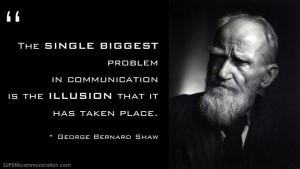Podcast: Play in new window | Download (Duration: 26:18 — 24.1MB) | Embed
Mission True organizations understand the Gospel demands excellence in their work!
Tucked away in a corner of America is Post Falls, Idaho.  This area is renowned for its outdoor recreation. It is also the home of Buck knives. In 1902 Hoyt Buck forged his first knife at age 13. Even then Hoyt believed that his Christian faith demanded excellence – “as unto the Lord” he would say.
This area is renowned for its outdoor recreation. It is also the home of Buck knives. In 1902 Hoyt Buck forged his first knife at age 13. Even then Hoyt believed that his Christian faith demanded excellence – “as unto the Lord” he would say.
Hoyt became a pastor and simply tinkered with knives on the side. America entered WWII in 1941 and a call for weapon donations went out for American soldiers. In that moment Hoyt decided to become bi-vocational. He crafted over 2000+ knives and donated them to the soldiers. From that beginning H.H. Buck Knives was born making about 5 knives per day in 1940.
Mission True organizations not only hold themselves to the highest standards because of their Christian identity, but they also recognize their contributions they are uniquely able to to make in the world because of being faith-based.
Consider some of the following examples of excellence –
- Taylor University – has been ranked number one in the category of Best Regional Colleges five years in a row by U.S. News & World Report
- Youth For Christ created an anti-bullying program that went national in the school systems of our nation
- Compassion International sponsors more children that other organizations of the world
- Prison Entrepreneurship Program program has demonstrated a dramatic decrease in the recidivism rate after teaching ex-convicts with business training
- Project 1.27, an adoption ministry founded by Colorado Community Church has helped 243 foster children find “forever homes” with Christian familiesMission True OrganizationsThe Gospel of Jesus Christ is integrated holistically into Mission True Organizations. This effort is not an afterthought. The Gospel reorients everything. There are four key facets to consider:
1. Maintain the highest levels of quality – “Poor quality” and “Christian” should never used in the same sentence to describe your organization. Substandard work is not God honoring. People do not support AVERAGE! Stay focus on the fact that your work is unto the Lord and not human masters!
2. Celebrate their unique societal contributions because of their Christian identity – Embrace your Christian distinctiveness and the various ways that you can make a unique contribution in the place of your influence.
3. Integrate the Gospel into al areas of their programs – No area of an organization is left untouched by Christian principles – no subject of operations is off limits to the influence of Christ. Products, goods & services, strategies and physical space is saturated in Gospel principles.
4. Excellence – Regardless of the type of work that you do, our faith in the Gospel message is too important to settle for mediocrity. Our faith demands “best in class” effort.
LINKS
Shepherds Advantage Leadership Podcast is now on iTunes – SUBSCRIBE
FREE GIFT – “The Art of Balancing Candor With Care” – Click on the icon at the bottom of the page
Executive Coaching Premier Service – Private message me for details on this customizable service
Music: “Gratitude Mood” by David Arivett. You can learn more about his music by clicking on his name. THANKS DAVID!



